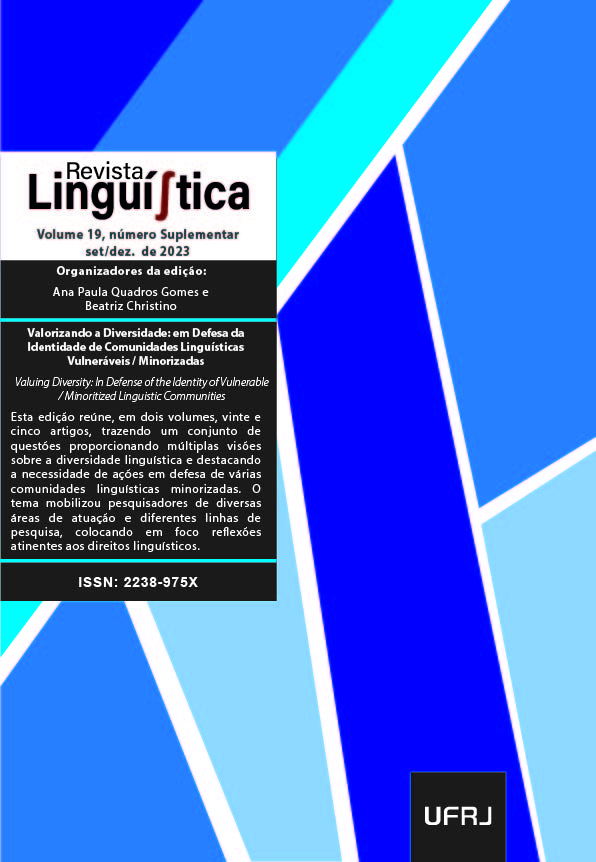Which language(s) do you speak? Investigating language beliefs and attitudes among the Palikur-Arukwayene people
DOI:
https://doi.org/10.31513/linguistica.2023.v19nSup.a60394Keywords:
Crenças, atitudes linguísticas, Palikur-Arukwayene, OiapoqueAbstract
This article aims to analyze the linguistic beliefs and attitudes of the Palikur-Arukwayene community in relation to the languages - Parikwaki, Portuguese, Kheuol and French - present in their context, considering power dynamics, linguistic influences and processes of linguistic stigmatization or valorization (Frosi, 2010; Faggion, 2010). The study is part of the theoretical field of Sociolinguistics and is a cross-sectional study with a mixed approach, combining qualitative and quantitative elements. The investigation was conducted in the Kumenê Village, Uaçá Indigenous Land, Oiapoque, and aimed to understand how the participants evaluate and value the oral and written modalities of the Parikwaki, Portuguese, Kheuol and French languages, considering contexts of use and communicative functions. The analysis of the subjects’ linguistic attitudes allowed us to map relations of linguistic prestige and disprestige in the community, while understanding the value attributed to oral and written modalities allowed us to investigate patterns of use in different communicative situations. The research was carried out using questionnaires applied to students, teachers and members of the Kumenê community. The results revealed the influence of the social and educational context on the (de)valorization of the languages under analysis, highlighting the importance of language policies that promote the preservation and development of local languages in diverse educational and social environments.
Downloads
Published
Issue
Section
License
Copyright (c) 2024 Revista Linguí∫tica

This work is licensed under a Creative Commons Attribution-NonCommercial 4.0 International License.
Authors who publish in the Revista Linguí∫tica agree with the following terms:
The authors maintain their rights, ceding to the journal the right to first publication of the article, simultaneously submitted to a Creative Commons license permitting the sharing with third-parties of published content as long as it mentions the author and its first publication in the Revista Linguí∫tica.
Authors may enter into additional agreements for the non-exclusive distribution of their published work (for example, posting in online institutional or non-profit repositories, or book chapters) so long as they acknowledge its initial publication in the Revista Linguí∫tica.

The journal Revista Linguí∫tica is published by the Post-Graduate program in Linguistics of UFRJ and employs a Creative Commons - Attribution-NonCommercial 4.0 International (CC-BY-NC).









